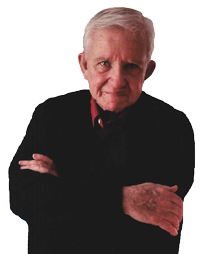
Alan and Heidi Huff-Hague
Not many neighborhoods in the city or the state or in the entire United States, have their own historian who provides the current history of the place – as well as reminding us of its past treasures. Alan Hague fills that unique role as publisher of The Broad Ripple Gazette, which he founded in 2004. He has just been honored by The Indiana Historical Society with The Hubert Hawkins History Award, given to “a local historian for his or her distinguished service.”
As a reader of the bi-weekly Gazette – and a graduate of School #80 (now a condo at 62nd and Guildford) – I am most entranced by its features that delve into the neighborhood’s past, like a history of The Vogue theater, which brought back memories of the countless Saturday afternoons I spent watching double features, newsreels, and serial episodes of long-gone heroes like Buck Rogers and The Lone Ranger.
The Gazette’s series on The Canal was not only informative on every aspect of that waterway, it dredged up memories of my Cousin Junior, who used to take a bamboo pole with a hook and a line and go fishing there.
In the very issue of The Gazette that was out when Alan Hague received the Historical Society award he published Part Two of “The History of Car Dealers in Broad Ripple” that is being told by his cousin Glen Hague – who was my classmate at School #80.
Note to Alan Hague:
Please tell your cousin Glen I was having chili in The Red Key last week when four people came over to my table to ask me “Were you a student of Miss Day?”
They had all been students of Roxie Lingle Day at School #80 – I was proud to answer that I was in the very first First Grade class taught by Miss. Day – and so was Glen Hague, cousin of Alan.
It’s a neighborhood with a deep history. We are lucky to have our own award-winning historian.
Of course, there is far more than geezer-bait history in the Gazette’ pages – as The Historical Society’ award notes, there are “stories on education, entertainment, transportation” and the never-ending zoning battles. And to keep you up to date on where to go and what to see, the ubiquitous Nora Spitznagel is “Buzzing Around Town.”

 Susan Neville, the Butler professor/author who happens to be The Most Under-Rated Important Writer in Indianapolis – and Indiana, and The Midwest and The United States – has a dynamite new essay that was chosen as a “Solo” for the literary magazine Ploughshares.
Susan Neville, the Butler professor/author who happens to be The Most Under-Rated Important Writer in Indianapolis – and Indiana, and The Midwest and The United States – has a dynamite new essay that was chosen as a “Solo” for the literary magazine Ploughshares. I met Toni Morrison, the Nobel prize winner who passed away a few days go, when I was on a committee of the Unitarian-Universalist Association to choose the winner of The Melcher Book Award in 1988.
I met Toni Morrison, the Nobel prize winner who passed away a few days go, when I was on a committee of the Unitarian-Universalist Association to choose the winner of The Melcher Book Award in 1988.